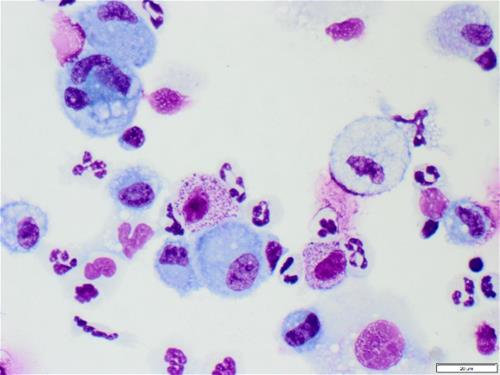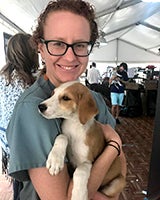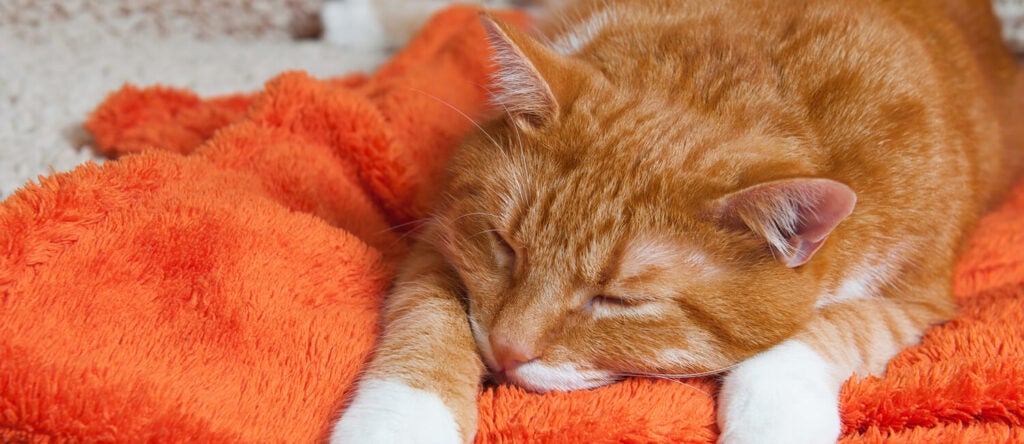Lennon Mucosal Immunology Laboratory
We believe that by studying naturally occurring Inflammatory Bowel Disease (IBD) in dogs and cats we can improve treatment for people and pets with this debilitating condition.
Our Research
Inflammatory bowel disease (IBD) is a debilitating and sometimes life-threatening condition. The Lennon Mucosal Immunology Laboratory studies veterinary samples, human samples, and experimental models to with the goal of finding better ways to prevent and treat IBD to improve the lives of pets and people.
Dogs and cats are our family — they share our environment, living in our houses and often sleeping in our beds. They share our food and water, mimic our exposure to pollutants and chemicals, and share our microbiomes. They also get the same diseases as we do.
Current Projects

Anti-inflammatory roles of mast cells in IBD
We have demonstrated that mast cells, which are usually considered harmful for their roles in allergy and anaphylaxis, have anti-inflammatory effects in IBD. The goal of our laboratory is to determine how these effects can be amplified to serve as better treatments for IBD.
Fat-soluble vitamin concentrations in IBD
Dogs and cats with IBD often have nutrient malabsorption. In people with IBD, deficiencies in fat-soluble vitamins, including vitamins A, D, E, and K, can occur. Vitamin D deficiency has been documented in dogs and cats, but there is currently no evidence that supplementation may improve disease. We do not know if deficiencies in vitamins A, E, and K occur in dogs and cats. We are currently studying these vitamins to determine if supplementation is necessary and helpful in dogs and cats.
Publications
Esomeprazole induces structural changes and apoptosis and alters function of in vitro canine neoplastic mast cells. Gould EN, Szule JA, Wilson-Robles H, Steiner JM, Lennon EM, Tolbert MK.Vet Immunol Immunopathol. 2023 Feb;256:110539. doi: 10.1016/j.vetimm.2022.110539. Epub 2022 Dec 22. PMID: 36592548
Dysregulated serum concentrations of fat-soluble vitamins in dogs with chronic enteropathy. Serafini F, Maxwell KM, Zhu X, Lennon EM. J Vet Intern Med. 2024 Sep-Oct;38(5):2612-2619. doi: 10.1111/jvim.17107. Epub 2024 Aug 1. PMID: 39087781
Feline eosinophilic sclerosing fibroplasia – a characteristic inflammatory response in sites beyond the gastrointestinal tract: case report and proposed nomenclature. Zampieri B, Church ME, Walsh K, Lennon EM. JFMS Open Rep. 2022 Aug 17;8(2):20551169221117516. doi: 10.1177/20551169221117516. eCollection 2022 Jul-Dec. PMID: 36003069
SARS-CoV-2 Delta Variant (AY.3) in the Feces of a Domestic Cat. Lenz OC, Marques AD, Kelly BJ, Rodino KG, Cole SD, Perera RAPM, Weiss SR, Bushman FD, Lennon EM. Viruses. 2022 Feb 17;14(2):421. doi: 10.3390/v14020421. PMID: 35216014 F

Director, Lennon Mucosal Immunology Laboratoryry
Elizabeth M. Lennon, DVM, PhD, DACVIM
Pamela Cole Assistant Professor of Internal Medicine
Join Us Today
We are always seeking highly motivated students, post-doctoral fellows, or veterinarians who are interested in becoming involved in research.
Find Us
University of Pennsylvania
School of Veterinary Medicine
3800 Spruce Street
Philadelphia, PA 19104-4539
Our Team

Olivia Good

Henry Hoffman

Olivia Lenz, DVM

Jillian Smith, DVM

COVID in a cat (link is external)
A report led by Penn Vet’s Dr. Elizabeth Lennon and colleagues has confirmed what is believed to be the first published account of the delta variant of SARS-CoV-2 in a house…
